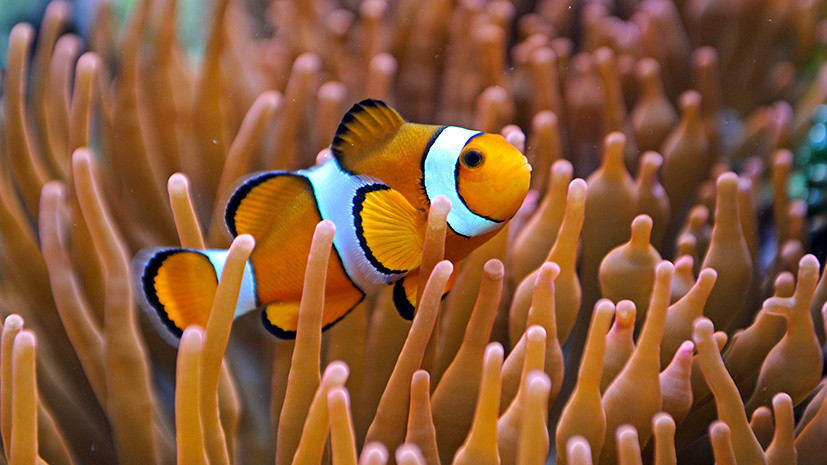French scientists from the National Center for Scientific Research and their colleagues from the American Oceanographic Institute in Woods Hole have revealed the genetic inability of clown fish (amphiprions) to adapt quickly enough to environmental changes. About this writes the journal Ecology Letters.
Amphiprions, popular among aquarists, that have become widely known thanks to Pixar's animated films about the Nemo and Dory fish, live in coral reefs. Here they live in symbiosis in polyps - sea anemones, which serve as “bodyguards” for clown fish, allowing them to hide from predators among their poisonous tentacles.
In turn, fish that are immune to the anemone poison cleanse the tentacles of debris and food debris.
For 10 years, scientists have observed a large population of amphiprions in their natural habitat in the lagoons of the Kimbe Bay in Papua New Guinea. According to the results of the study, it was found that the abundance of this fish species is directly dependent on the state of their habitat: the purity of ocean water, the area of the coral reef and the presence of a sufficient amount of sea anemones. Moreover, DNA analysis of many generations of local clown fish showed an extremely weak genetic contribution to the ability of this species to survive and reproduce.
“We were able to get these results thanks to large-scale efforts to collect DNA samples of clown fish and its sequencing. Previously, no other marine organisms had such work. The main and at the same time alarming discovery for us was that in an effort to preserve the population of this species and protect it from the effects of global warming, we cannot assume that it is capable of genetically adapting to the effects of climate change. Apparently, in the future Nemo will not be able to save itself, ”said Simon Torrold, one of the authors of the work, a researcher at the Woodshole Oceanographic Institute.
It turned out that the survival of amphiprions is 50% dependent on the health of the sea anemone, to which this or that fish is “attached”. According to scientists, “dumb” are doomed if the polyps of Papua New Guinea suffer, for example, due to processes associated with global warming.
“Thus, Nemo is in no way adapted to the steady deterioration of his living environment. There is no sufficient reason to expect that amphiprions will be able to adapt fast enough to survive in the lagoons. Over time, its survival will depend on our efforts to preserve a quality environment for its habitat, ”concluded the co-author of the work, the French geneticist-evolutionist, an employee of the National Center for Scientific Research Benoit Pujol.

